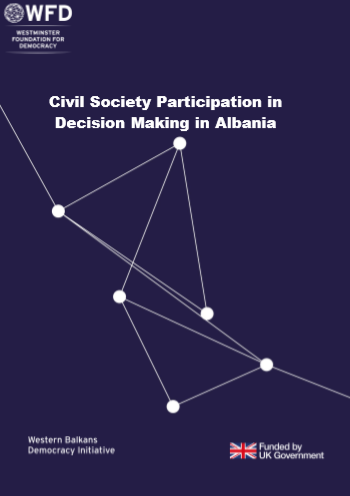
An active and participatory civil society that is able to hold public institutions accountable, propose policy solutions, and enable citizens to exercise their rights, voice their concerns, and engage in policy development is crucial for Albania in successfully facing difficulties on European integration, implementing major ongoing reform processes, and addressing current concerns about the accountability of the government at both central and local level.
The main objective of this study is to analyze the current interaction, participation, and engagement patterns and mechanisms between public institutions and civil society. It does so by focusing on the cooperation of civil society organizations (CSOs) with decision-makers in Parliament, central government (line ministries), local government, and independent institutions.
This study finds that the legal and policy frameworks for enabling cooperation between public institutions and civil society are largely in place, but the challenges remain: lack of feedback and follow-up mechanisms, poor implementation of legal framework, and superficial collaboration with CSOs with very limited substantial impact.
Click to download the full report in English and Albanian.